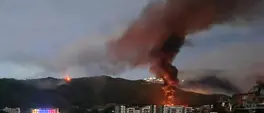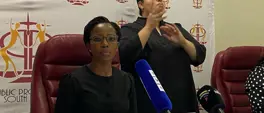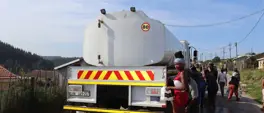'Govt AND mining companies can do more to build sector that's inclusive of communities'
Paula Luckhoff
6 February 2024 | 17:30The Money Show interviews land reform specialist Bulelwa Mabasa as the 30th Mining Indaba takes place in Cape Town.
Bruce Whitfield talks to Bulelwa Mabasa, head of Land Reform at Werksmans Attorneys and member of the Presidential Advisory Panel on Land Reform.
The who's who of the local and international mining industry are currently in Cape Town for the 30th edition of South Africa's annual Mining Indaba.
As we know, along with global problems like falling commodity prices and geopolitical issues, the local sector also faces a host of domestic challenges, from loadshedding to the delays at ports.
RELATED: Loadshedding just one of a plethora of issues plaguing SA's mining sector
One of the most pressing concerns that needs addressing is the apparent conflict of interest between the rights of the big mining companies and communities affected by their operations.
Bruce Whitfield talks to Bulelwa Mabasa, head of Land Reform at Werksmans' Attorneys and member of the Presidential Advisory Panel on Land Reform.
While mining companies are often left to bear the brunt of high transportation costs for instance in an already volatile environment she notes, it's communities that are also often left to bear the brunt of the aftermath of mining.
What has been going through her mind, Mabasa says, is the opportunity that exists in current legislation to help these communities, as set out in the Mineral and Petroleum Resources Development Act (MPRDA).
"A real opportunity lies in government directly assisting communities on communal land, with the setting up of workable, legally sound Community Trusts that will alleviate the challenge of creating secure land tenure and land ownership rights for communities."
"The latter requires a focused approach and possible reforms within the MPRDA in favour of a more robust and workable opportunity for communities to have a real stake in the mining revolution that is progressive and inclusive."
Bulelwa Mabasa, Head: Land Reform Practice - Werksmans Attorneys
Mabasa also sees an opportunity for a second chance for the mining companies themselves to 'do good by communities'.
"Sometimes government ignores current legislation that is there to assist them to kickstart this idea of a mining sector that's inclusive of communities... There's a section within the legislation that allows communities to apply for preferred mining rights, but of course it begs the question if they're able to put up the financial abilities and the technical know-how without the support of government."
"I feel like it's a second opportunity for the mining industry to kind of do good by communities as opposed to what we've seen in the past decade, which has been an industry that is just extractive, where the environment isn't looked after, and they up and go when the resource is finished."
Bulelwa Mabasa, Head: Land Reform Practice - Werksmans Attorneys
She says a conversation that needs to happen right now is how the current legislation could be implemented to its letter so that these communities have a fair chance of actually being stakeholders, and being part of a renewed or revolutionised mining industry.
"I find that there isn't much focus by mining companies on making sure that they do follow the best practices."
Scroll up to listen to this important conversation













